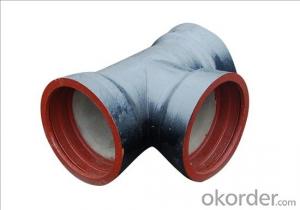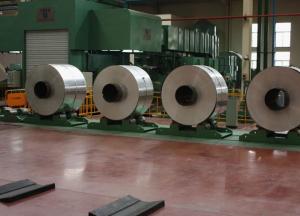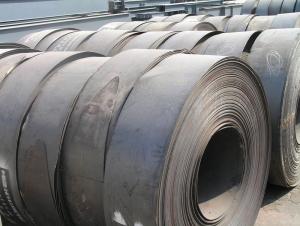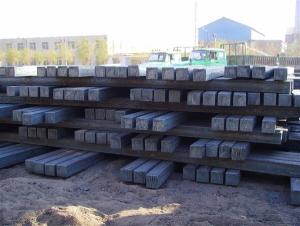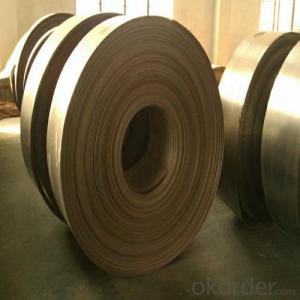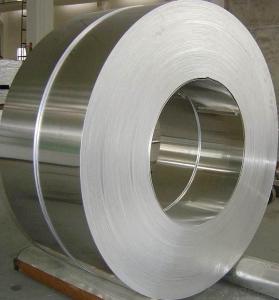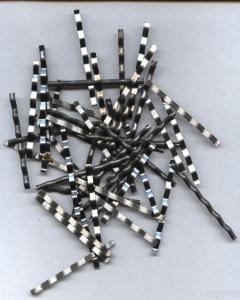DI pipe fitting DN300 double socket flange tee
- Loading Port:
- Tianjin
- Payment Terms:
- TT OR LC
- Min Order Qty:
- 100 kg
- Supply Capability:
- 10000 kg/month
OKorder Service Pledge
OKorder Financial Service
You Might Also Like
DI pipe fitting DN300 double socket flange tee
Function: for water delivery.
standards | ISO2531, EN545 , EN598 , AWWA C110 , AWWA C153. |
material | Ductile iron. |
Coating | Fusion bonded epoxy coating cement lining inside and zinc primer and bitumen painting outside |
Package | wooden cases ,wooden pallets, steel crates |
accessories such as gaskets , bolts and nuts available upon request | |
Packaging & Delivery
| Packaging Detail: | cases,pallets or as per customers' requirements |
| Delivery Detail: | 20-30 days after order |
Specifications
all flanged tee/di pipe fittings
1,Standards : ISO2531, ISO4422, EN545 , EN598 , BS4772 , AWWA C110
2,material : GGG500-7 or o
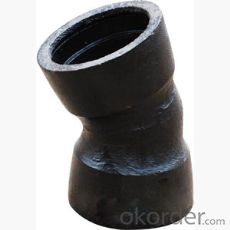
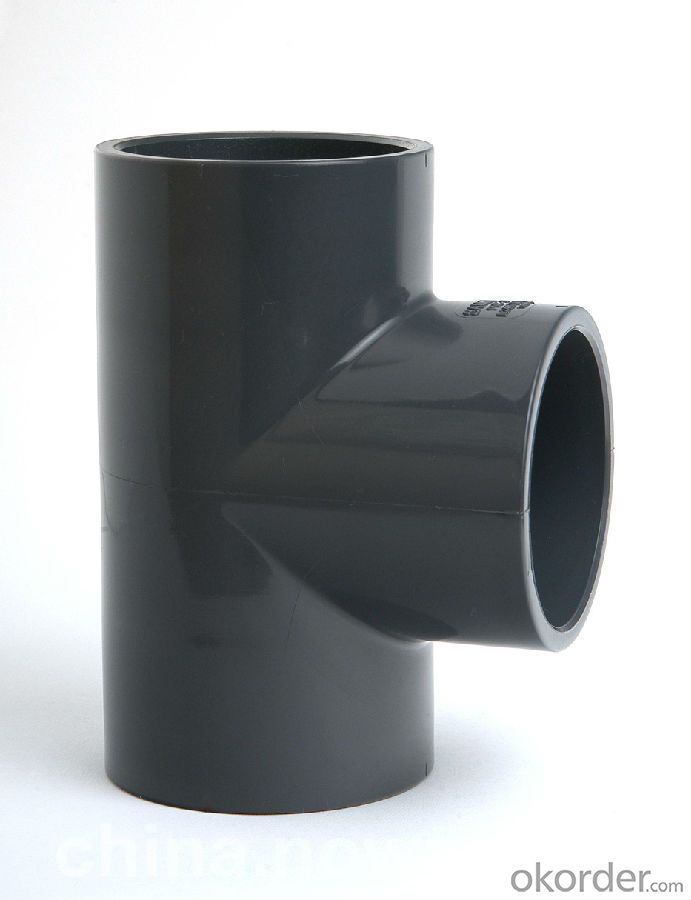
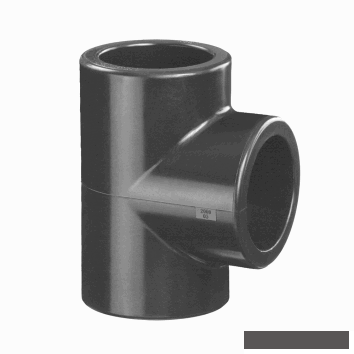
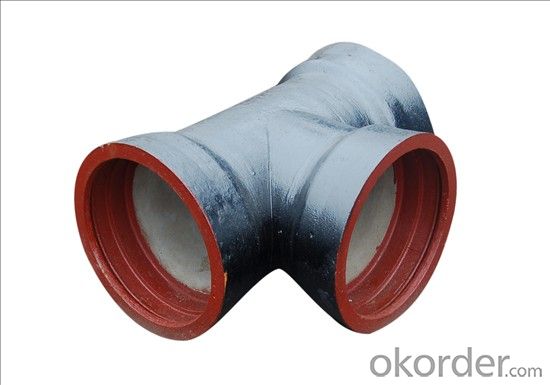
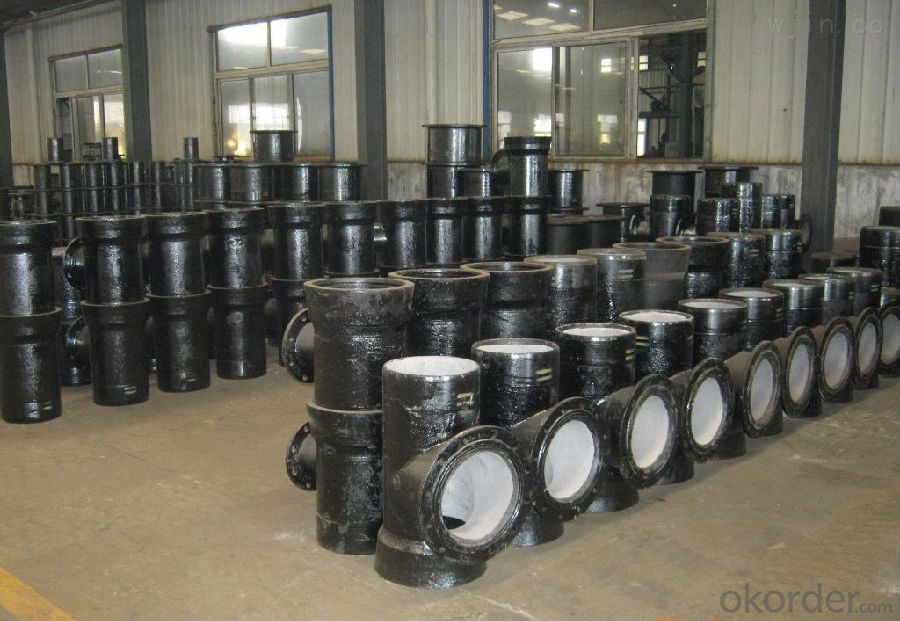

CNBM International Corporation (CNBM International) is the most important trading platform of CNBM Group Corporation, a state-owned company under the direct supervision of State-owned Assets Supervision and Administration Commission of the State Council.
CNBM International is highly recognized by its business partners and clients all over the world and has obtained rapid development under the spirit of win-win. We will carry on the mutual beneficial, innovative and revolutionary trading structure as we did before, create value for our employees, share holders and clients and benefit the whole society in our future development.
- Q:What are the different types of steel fasteners and their uses?
- There are several types of steel fasteners commonly used in various applications. Some of the most common ones include screws, bolts, nuts, and washers. Screws are threaded fasteners that are designed to be inserted into pre-drilled holes and are commonly used to join two or more materials together. They come in various sizes and types, such as wood screws, machine screws, and self-tapping screws, each tailored for different materials and purposes. Bolts are similar to screws but typically have a larger head and require a nut to secure them. They are commonly used in applications that require high tensile strength and are often used to hold heavy objects together. Nuts are internally threaded fasteners that are paired with bolts to create a strong and secure joint. They come in various shapes and sizes, such as hex nuts, wing nuts, and lock nuts, and are used to fasten materials together by applying torque. Washers are thin, flat discs with a hole in the center. They are placed between the nut or bolt head and the material being fastened to distribute the load and prevent damage to the surface. Washers help to provide a more secure and even fastening. Each type of steel fastener has its own specific uses and applications, and choosing the right one depends on factors such as the materials being joined, the level of strength required, and the environmental conditions the fastener will be exposed to.
- Q:How are steel forgings used in the aerospace industry?
- Steel forgings are extensively used in the aerospace industry due to their exceptional strength and durability. These forgings are employed in critical components such as landing gears, engine parts, and structural elements of aircraft. The high-quality steel used in forgings ensures the ability to withstand extreme temperatures, pressures, and stress, thereby enhancing the safety and reliability of aerospace vehicles. Additionally, steel forgings offer excellent fatigue resistance, enabling them to endure the rigorous demands of flight operations, making them an essential part of the aerospace industry.
- Q:What are the uses of steel in the construction of schools and universities?
- Steel is widely used in the construction of schools and universities due to its superior strength and durability. It is commonly used in structural components like beams, columns, and frames, providing stability and support to the buildings. Additionally, steel is fire-resistant, making it a safe choice for educational facilities. Its versatility allows for flexible designs, accommodating various architectural styles and adapting to changing needs. Moreover, steel construction is efficient, reducing construction time and costs, while also being environmentally friendly as it is recyclable. Overall, steel plays a crucial role in ensuring the safety, longevity, and functionality of schools and universities.
- Q:What are the different types of steel trusses and frames available?
- There are several types of steel trusses and frames available, including the Pratt truss, Warren truss, Howe truss, and K truss. Each type has a unique design and configuration that suits different structural needs and load capacities. Additionally, there are different frame systems such as rigid frames, portal frames, and truss frames, each offering specific advantages depending on the intended application and desired structural performance.
- Q:What are the different types of steel sheets and their applications?
- There are several types of steel sheets, including hot rolled, cold rolled, galvanized, and stainless steel sheets. Hot rolled sheets are used in structural and construction applications due to their strength and durability. Cold rolled sheets are commonly used in automotive and appliance industries for their smooth surface and precise dimensions. Galvanized sheets are coated with zinc to prevent corrosion, making them suitable for outdoor applications such as roofing and fencing. Stainless steel sheets are resistant to corrosion and heat, making them ideal for food processing, chemical, and medical industries.
- Q:How is steel used in the construction of hospitals and healthcare facilities?
- Steel is used in the construction of hospitals and healthcare facilities for various purposes such as structural support, framing, and reinforcement. It provides strength, durability, and resistance to fire and earthquakes, ensuring the safety and stability of the buildings. Steel is also used in the construction of medical equipment, fixtures, and furniture, making it an essential material in the healthcare industry.
- Q:What are the properties of galvanized steel?
- Galvanized steel is a type of steel that has been coated with a layer of zinc, providing it with several beneficial properties. It exhibits excellent corrosion resistance, making it suitable for outdoor applications and environments prone to moisture. The zinc coating acts as a sacrificial barrier, protecting the underlying steel from rust and oxidation. Galvanized steel also has high durability, as the zinc layer enhances its resistance to scratches, abrasion, and impacts. Additionally, it offers good formability, allowing it to be easily shaped and fabricated into various structures or products. Overall, galvanized steel offers strength, longevity, and cost-effectiveness, making it a popular choice in construction, automotive, and industrial sectors.
- Q:How is steel wire used in the production of suspension systems for vehicles?
- Steel wire is commonly used in the production of suspension systems for vehicles as it provides strength, durability, and flexibility. It is utilized in various components such as coil springs, torsion bars, and stabilizer bars. The steel wire is carefully designed and manufactured to withstand the weight and pressure of the vehicle, ensuring a smooth and stable ride.
- Q:How is steel used in the construction of pre-engineered buildings?
- Steel is used extensively in the construction of pre-engineered buildings due to its strength, durability, and versatility. It is commonly used as the primary structural material, providing support and stability to the building. Steel is used to manufacture columns, beams, and trusses, which form the skeleton of the structure. Additionally, steel is utilized in the fabrication of roofing, wall panels, and cladding, ensuring the building is weather-resistant and aesthetically pleasing. Its load-bearing capacity allows for larger spans and taller structures, making it an ideal choice for pre-engineered buildings where efficiency and cost-effectiveness are crucial.
- Q:What is the role of steel in the telecommunications industry?
- Steel plays a crucial role in the telecommunications industry as it is used to construct transmission towers and other supporting structures. These steel structures provide the necessary height and stability for antennas and other equipment to transmit and receive signals. Steel's strength, durability, and ability to withstand harsh weather conditions make it an ideal material for telecom infrastructure, ensuring reliable and efficient communication networks.
1. Manufacturer Overview |
|
|---|---|
| Location | |
| Year Established | |
| Annual Output Value | |
| Main Markets | |
| Company Certifications | |
2. Manufacturer Certificates |
|
|---|---|
| a) Certification Name | |
| Range | |
| Reference | |
| Validity Period | |
3. Manufacturer Capability |
|
|---|---|
| a)Trade Capacity | |
| Nearest Port | |
| Export Percentage | |
| No.of Employees in Trade Department | |
| Language Spoken: | |
| b)Factory Information | |
| Factory Size: | |
| No. of Production Lines | |
| Contract Manufacturing | |
| Product Price Range | |
Send your message to us
DI pipe fitting DN300 double socket flange tee
- Loading Port:
- Tianjin
- Payment Terms:
- TT OR LC
- Min Order Qty:
- 100 kg
- Supply Capability:
- 10000 kg/month
OKorder Service Pledge
OKorder Financial Service
Similar products
New products
Hot products
Hot Searches
Related keywords
